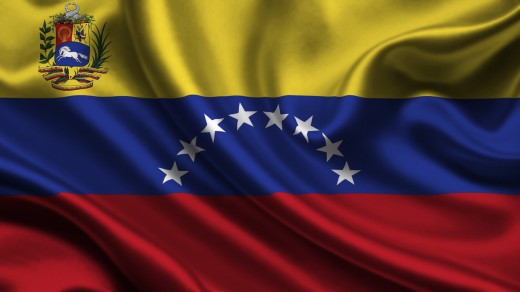Rising Inflation, Economic Pressures Prompt Rating Cut

Standard & Poor’s Ratings Services on Tuesday cut Venezuela’s credit rating further into junk territory, citing President Nicolás Maduro’s failure to take steps to combat rising inflation and a deepening economic crisis.
S&P downgraded Venezuela’s rating from B-minus to triple-C-plus. The new rating indicates that there is a one-in-two chance that the South American country defaults on its sovereign debt in the next two years, S&P said.
Though boasting the world’s largest proven crude oil reserves, Venezuela’s economy has been mired with the highest inflation rates in the Americas and chronic shortages of food, medicine and car parts as the government withholds dollars from importers, who are subject to restrictive currency controls.
S&P said it expects Venezuela’s gross domestic product to fall by as much as 3.5% this year, with inflation rising by up to 65% by the end of the year.
Last week, Venezuelan bond prices swooned on renewed speculation that President Maduro’s administration may struggle to pay some $4.5 billion in debt that matures next month.
The concerns were partly sparked by an article published online by two Harvard economists with ties to Venezuela’s opposition who argued that a default could offer the government away out of its current crisis. Mr. Maduro’s fervently anticapitalist regime faces a moral dilemma, the economists said, by using its limited dollar reserves to pay Wall Street bondholders while shunning private companies that service its people like importers, manufacturers and even airlines—all of which have reduced operations in the country amid the hard-currency squeeze.
Mr. Maduro last week assured investors that Venezuela would pay all of its external obligations, “down to the last dollar.” But long delays in implementing measures to turnaround the moribund economy have added to the market’s uneasiness. The president’s recent reorganization of his cabinet, in which he sidelined longtime oil and economy czar, Rafael Ramirez, also failed to address concerns over the future direction of economic policy.
High risks perceived on the debt means Venezuela pays more yield to its bondholders than any other country in the developing world, according to J.P. Morgan’s Emerging Market Bond Index Global. Venezuelan debt on the index fetches nearly 13 percentage points over U.S. Treasurys, far more than war-torn Ukraine and nearly double the rates paid by chronic defaulters like Argentina. Some government bonds, as well as those of state energy giant Petróleos de Venezuela SA, or PdVSA, yield more than 15%.
“We expect political polarization, erratic economic policy-making that exacerbates both the economy’s oil dependence and the prevailing macroeconomic inconsistencies, and weakening external liquidity to remain the main constraints to the ratings on Venezuela,” S&P said.
Venezuela could face a one-notch downgrade if the government takes adjustment measures, but fails to implement them effectively because of political pressures, the ratings firm said. However, S&P said it could upgrade its outlook to stable if Venezuela takes steps to defuse the political tensions.
Months of antigovernment street protests led to the deaths of at least 42 people earlier this year, before the demonstrations fizzled amid a crackdown by state security forces and the jailing of several prominent political opponents.
S&P added that Venezuela soon plans to receive external financing, including a $4 billion loan from China that could support the country in the case of financial stress.
The central government and PdVSA may also look to restructure its debt profile by moving investors in bonds that mature over the next few years to longer-dated securities, S&P said.
Bron: Wall Street Journal


leuk , zo een diktatuur…zou hier ook moeten komen volgens een hoop dombo”s